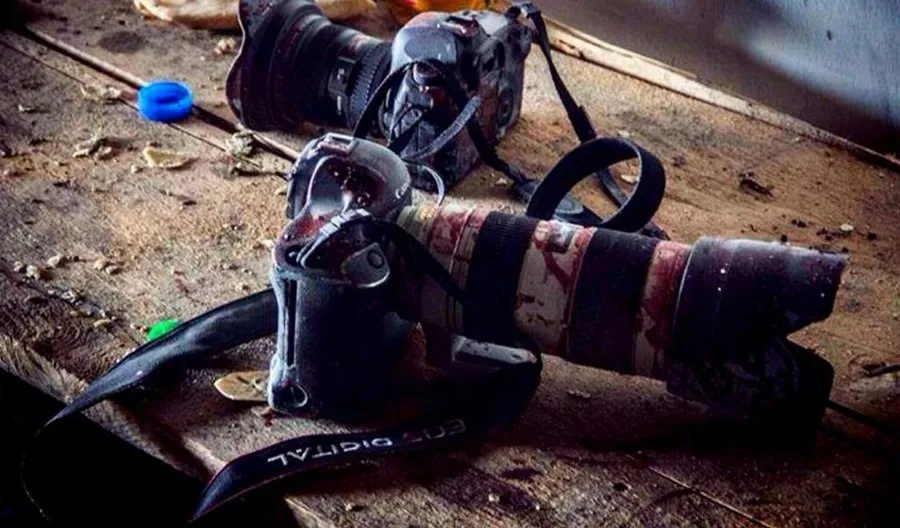
Sacrifices of the Parties on the Altar of War

Mwatana for Human Rights stated in a release today, coinciding with the World Press Freedom Day observed annually on the third of May, that the suppression and violations against journalists in Yemen have persisted and worsened since the onset of armed conflict in September 2014. Journalism has become synonymous with accusation in the perspectives of various conflicting parties. Since the beginning of the war, Mwatana has documented 63 incidents of violations against Yemeni journalists, including arbitrary detention, enforced disappearance, torture, and death sentences in areas under the control of the Ansar Allah (Houthi) group.
Radhya Al-Mutawakel, Chairperson of Mwatana for Human Rights, said, “Freedom of the press is not merely a human right, but the foundation of integrity and public scrutiny in any democratic society. It enhances accountability and transparency, facilitates the free flow of information, and contributes to shaping an informed and aware public opinion, especially in an era marked by an unprecedented informational deluge alongside a multitude of knowledge channels and media outlets. Nonetheless, it remains susceptible to the infiltration of misinformation and obfuscation, sometimes intentionally, and at other times out of ignorance."
Al-Mutawakel added, "For about a decade now, journalists in Yemen have been enduring unprecedented circumstances, not seen since the declaration of the Republic of Yemen. This coincided with the eruption of the conflict, now entering its tenth year, which has been characterized by repression, persecution, and the stifling of freedoms to the narrowest limits. Journalists have been subjected to a number of violations, often amounted to direct targeting and killings. This situation has led to a significant percentage of independent journalists refraining from disclosing their profession out of fear of repression or censorship."
Mwatana had previously released a report titled "Press in Yemen Faces Extinction: Journalists Need Support," which detailed numerous violations committed against journalists by the parties to conflict in Yemen.
The political discord among the parties involved in the conflict has led to another casualty: the truth. The conflict, evolving from its battlefield manifestation into a parallel struggle within the realm of journalism, has diverted the course of journalism - driven by the exigencies of the situation - away from its true purpose. The conflict and political polarization have distorted the professional compass of journalism in Yemen, turning it into a variable subject to the whims of political elites. It has become a flexible tool for incitement, repression, and misinformation. Consequently, truth has become distorted and distant from reality.
Yemen is a party to seven of the nine core international human rights treaties, including the International Covenant on Civil and Political Rights, which, in Article 19, guarantees the right to hold opinions without interference and the freedom of expression. As a signatory to these instruments, Yemen is legally obligated to respect, protect, and uphold human rights for individuals within its jurisdiction.
Mwatana for Human Rights reaffirms the imperative need to remove the constraints that shackle journalists, preventing them from fulfilling their duty of truth-telling without fear of retribution or violent reprisal. Establishing a free and fair media environment contributes to building a better future for all. Mwatana also calls on all parties to the conflict in Yemen to cease the suppression and violations against journalists and to release all arbitrarily detained and forcibly disappeared journalists.